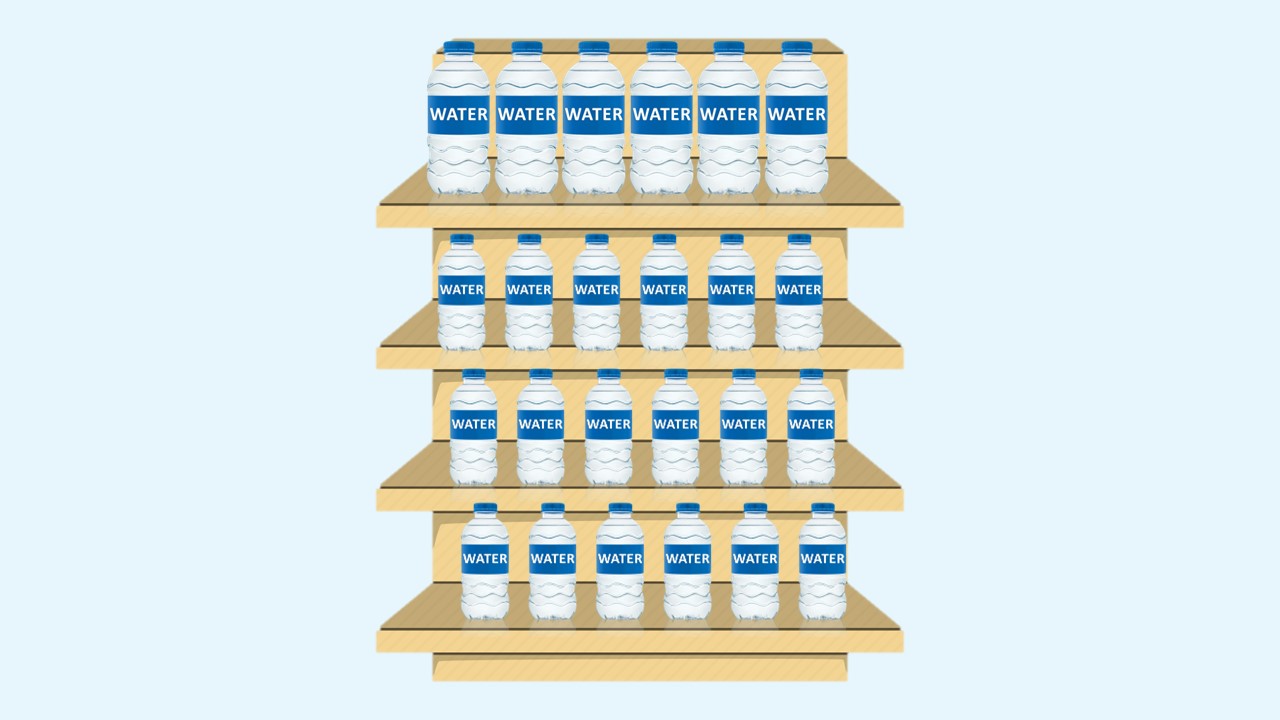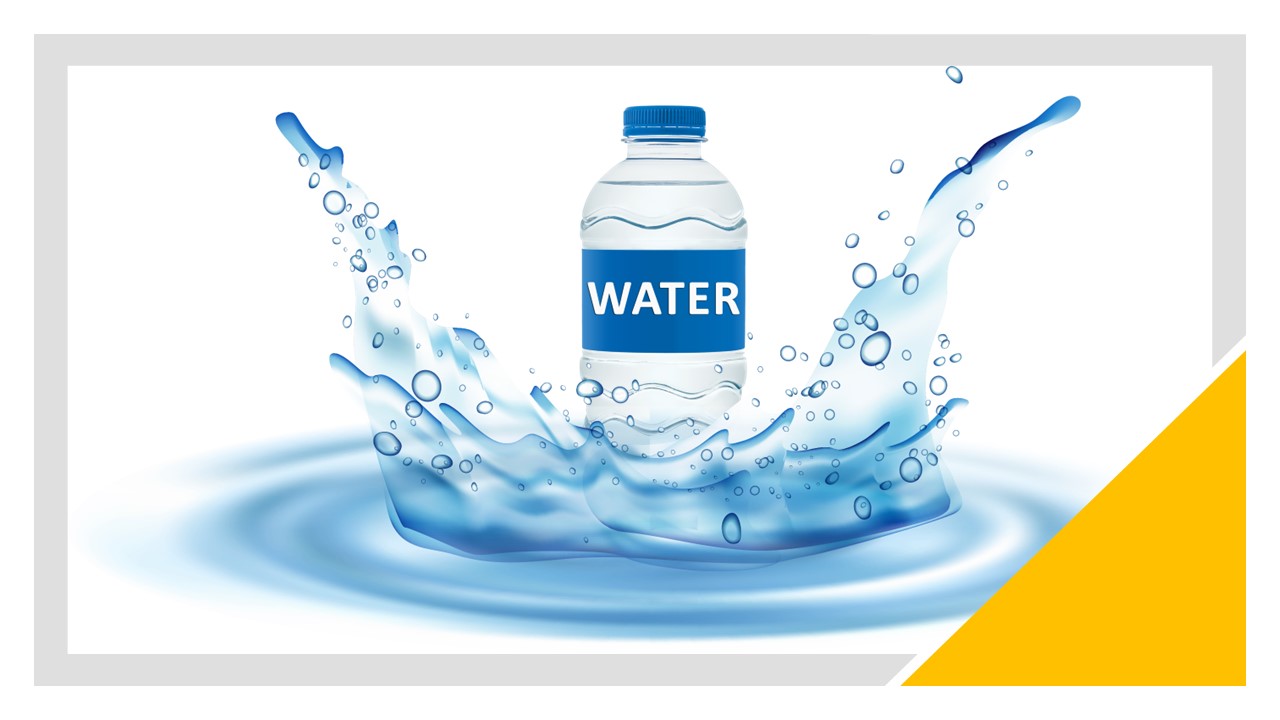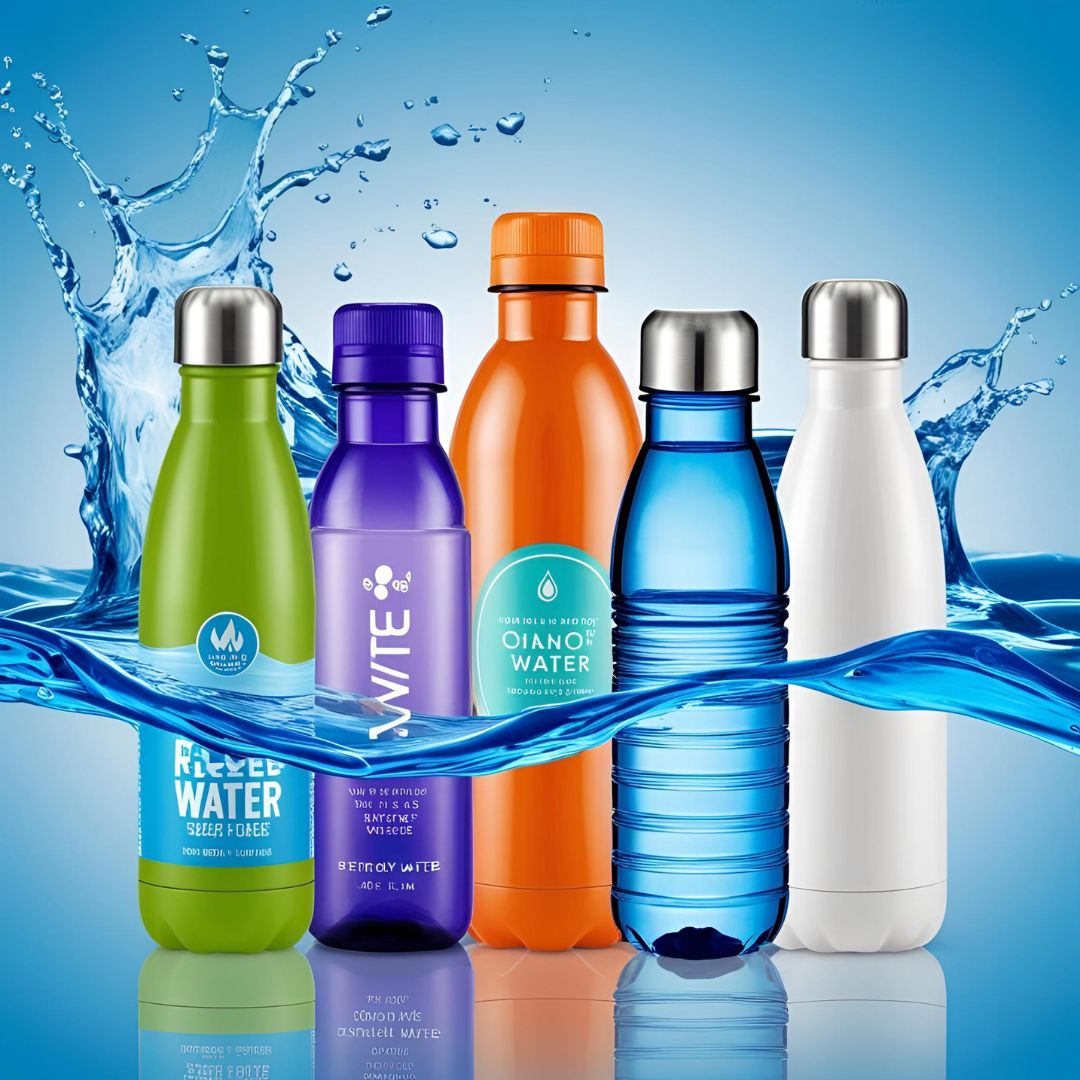Does Water Bottles Expire – How to Tell If Your Water Bottle Is Safe to Drink
Does water bottles expire? No, water bottles do not have an expiry date but they can become degraded over time. We all know that staying hydrated is important for our health and well-being. And while many of us reach for a convenient plastic water bottle when we’re on the go.
Though water bottles have no expiry, bottled water can go bad over time. Research has shown that over time, the plastic in water bottles can degrade and leach harmful chemicals into the water. Additionally, bacteria can grow inside the bottle if it is not stored properly.
So, while water bottles may not have an official expiration date, it is important to be aware of the risks of drinking from a bottle that has been stored for too long. In this article, we’ll explore the science behind water bottle degradation, the potential health risks, and what you can do to ensure that the water you drink is always safe and refreshing.
Does Water Bottles Expire
Does water bottles expire? Water bottles do not typically have an expiration date, but they can degrade over time and may not be safe or taste good to drink if they are stored for too long.
While water bottles have no expiry date, plastic bottled water may not be suitable for drinking after two years. The reason is that the bottle can leach chemicals into the water and consuming such water can cause some health issues.
In general, it is recommended that you do not drink water from a plastic bottle that has been stored for more than 2 years.
This is because, over time, the plastic can leach chemicals into the water, which can affect its taste and safety. Additionally, bacteria can grow in the bottle if it is not properly cleaned or stored in a cool, dry place.
If you are unsure whether or not a water bottle is still safe to drink from, it is best to err on the side of caution and dispose of it. Alternatively, you can consider using a reusable water bottle made of stainless steel or glass, which is more durable and does not degrade over time as plastic bottles can.
RELATED: Shelf Life Of Water Bottles – Everything You Need To Know
How To Tell If A Water Bottle Has Expired Or Gone Bad
If you’re unsure whether a water bottle has expired or gone bad, there are several signs you can look for. Expired water bottles can pose potential health risks and may not taste or smell fresh. Here are some signs to look for in expired water bottles:
- Strange odor or taste
- Discoloration or cloudiness
- Swollen or damaged bottle
If you’re ever in doubt about whether a water bottle is safe to drink from, it’s always best to err on the side of caution and dispose of it.
The Potential Risks Of Drinking Expired Or Bad Water (Does Water Bottles Expire)
Drinking water that has expired or gone bad can pose several health risks, depending on the cause of the contamination. Here are some of the potential risks associated with drinking expired or contaminated water:
1. Bacterial Growth
When water is stored for an extended period of time, bacteria can grow and multiply, leading to potential illnesses. The bacteria can come from the environment, the container, or even your own mouth.
2. Exposure To Harmful Chemicals
As plastic water bottles degrade, they can release harmful chemicals into the water, such as bisphenol A (BPA) and phthalates. These chemicals have been linked to various health problems, including hormonal imbalances and reproductive issues.
3. Increased Risk Of Infection
If a water bottle has been contaminated with harmful bacteria, viruses, or parasites, drinking from it can increase your risk of infection. This is especially true if you have a weakened immune system.
4. Gastrointestinal Problems
Drinking water that has gone bad can also lead to gastrointestinal problems, such as stomach pain, diarrhea, and vomiting.
It’s worth noting that the risks associated with drinking expired or contaminated water can vary depending on the individual and the specific circumstances.
For example, some people may be more susceptible to bacterial infections or chemical exposure than others. Additionally, the severity of the health effects can vary depending on the dose and duration of exposure.
To minimize your risk of exposure to contaminated water, it’s important to follow proper storage and handling guidelines for your water bottles.
This includes keeping them in a cool, dry place, washing them regularly, and discarding any bottles that show signs of damage or contamination. By taking these simple steps, you can help ensure that the water you drink is safe and refreshing, every time.
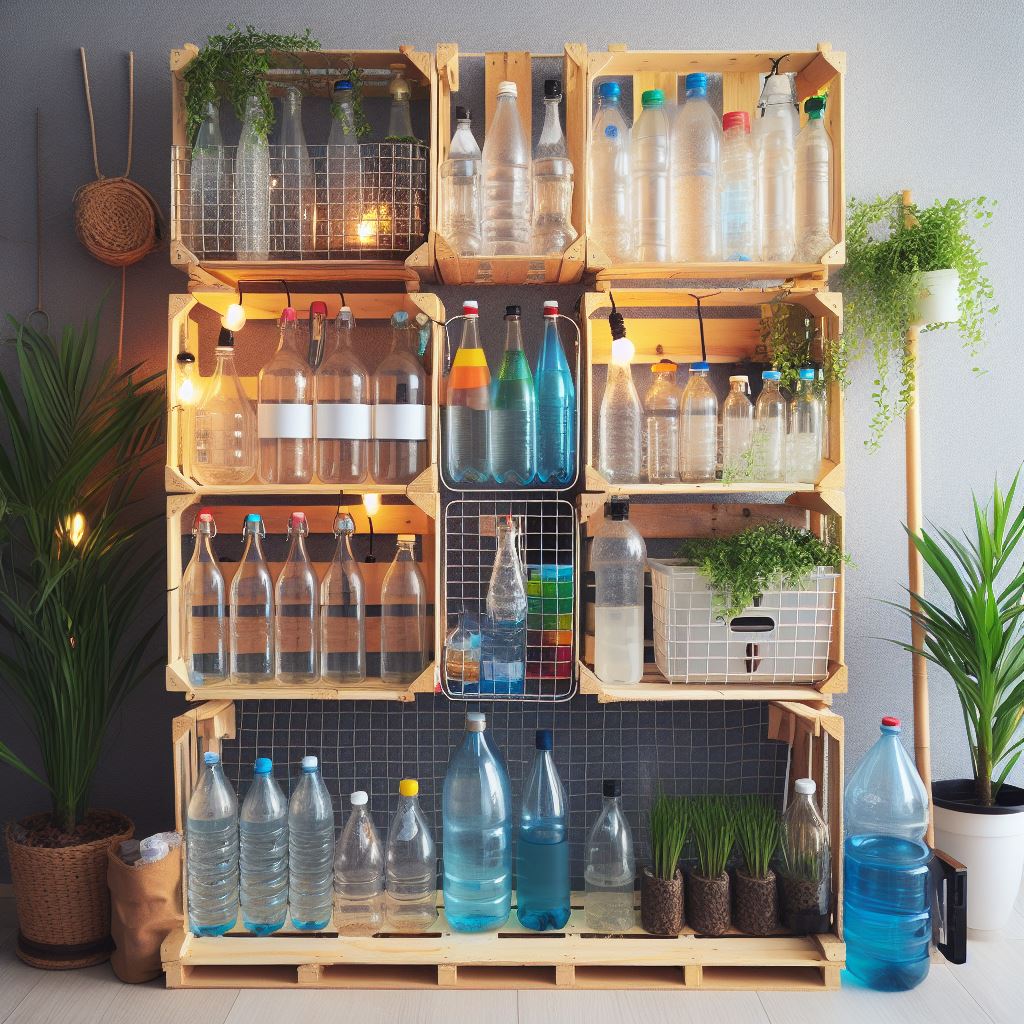
How To Properly Store Water Bottles (Does Water Bottles Expire)
Proper storage of water bottles is essential to ensure that they remain safe and refreshing to drink. Here are some tips for storing water bottles safely:
- Keep them in a cool, dry place: Water bottles should be stored in a cool, dry place away from direct sunlight or heat sources. Exposure to heat or sunlight can cause the plastic to break down, which can lead to chemical leaching or bacterial growth.
- Use airtight containers: If you’re storing your water bottles for an extended period of time, consider using airtight containers to help prevent bacteria and other contaminants from getting in.
- Wash them regularly: Make sure to wash your water bottles regularly with soap and water. This will help to remove any dirt or bacteria that may have accumulated on the surface of the bottle.
- Avoid reusing disposable bottles: While it may be tempting to reuse disposable water bottles, it’s not recommended. These bottles are not designed to be reused, and they can harbor bacteria and other contaminants.
- Consider using reusable bottles: Using a reusable water bottle is not only better for the environment, but it can also be safer. Look for bottles made from materials that are less likely to leach chemicals into the water, such as stainless steel or glass.
Alternatives To Disposable Water Bottles (Does Water Bottles Expire)
Disposable water bottles are not only harmful to the environment, but they can also be expensive over time. Fortunately, there are many alternatives to disposable water bottles that are both eco-friendly and cost-effective.
- Reusable water bottles: Using a reusable water bottle is one of the easiest and most effective ways to reduce your reliance on disposable bottles. Look for bottles made from materials that are durable and safe for drinking, such as stainless steel, glass, or BPA-free plastic. Many reusable bottles come with features like insulation, built-in filters, and easy-carry handles.
- Refillable water dispensers: Refillable water dispensers are a great option for larger groups or events. Many stores and restaurants offer refillable dispensers for customers, or you can invest in your own for personal use.
- Tap water: In many parts of the world, tap water is perfectly safe to drink. If you’re concerned about the quality of your tap water, you can invest in a water filter or have your water tested for contaminants.
- Carafes or pitchers: If you prefer to keep water in the fridge for easy access, consider using a carafe or pitcher instead of disposable bottles. These can be made from materials like glass or BPA-free plastic and can be easily refilled as needed.
By using alternatives to disposable water bottles, you can reduce your carbon footprint and save money over time. Plus, reusable bottles and other eco-friendly options come in a variety of fun colors and designs, so you can express your personal style while making a positive impact on the environment.
How Long Does It Take For Water To Expire (Does Water Bottles Expire)
Water itself does not expire or go bad, but the plastic or container it is stored in can affect its quality over time. If stored properly, water can last for years without any significant changes in taste, odor or appearance.
However, if stored in plastic bottles for too long or in a place that is exposed to high temperatures or sunlight, the plastic can break down and leach harmful chemicals into the water, leading to a change in taste, odor or color.
The US Food and Drug Administration (FDA) recommends that bottled water be consumed within 2 years of its production date to ensure optimal quality.
However, this is a recommendation and not a requirement. It’s important to note that the “expiration” or “best before” date on a water bottle refers to the quality of the water, not its safety. After the expiration date, the water may still be safe to drink, but its quality may have deteriorated.
It’s important to check your water bottles for signs of damage or contamination before consuming them, regardless of how long they have been stored. If your water has a strange odor or taste, is discolored, or is stored in a damaged or swollen bottle, it’s best to discard it and use a fresh supply.
Does Water Expire In Glass Bottles (Does Water Bottles Expire)
No. Water itself does not expire or go bad, regardless of whether it is stored in a glass or plastic container. However, the quality of water stored in glass bottles can be affected by factors such as exposure to sunlight and temperature changes.
If stored properly, water in a glass bottle can last for years without any significant changes in taste, odor or appearance.
One advantage of storing water in a glass bottle is that glass is inert and doesn’t react with the water like plastic can. This means that there is less risk of chemical leaching or contamination compared to plastic bottles.
Additionally, glass is non-porous and easier to clean, which can help prevent bacterial growth.
To ensure that your water stays fresh and safe to drink, it’s important to store it in a cool, dry place away from direct sunlight or heat sources.
If you’re storing your water for an extended period of time, it’s recommended that you use airtight glass containers to prevent exposure to air and potential contaminants.
Regularly check your water for signs of damage or contamination, such as strange odor or taste, discoloration or a damaged bottle, which can help ensure that you’re drinking safe and refreshing water.
Plastic Water Bottle Expiry Date (Does Water Bottles Expire)
2 years depending on how it is stored. Plastic water bottles themselves do not have an expiration date, but the plastic used in the bottles can break down over time, potentially leaching harmful chemicals or allowing bacterial growth.
As a result, it’s important to check your plastic water bottles for signs of damage or wear before consuming the water.
Some signs that a plastic water bottle may have gone bad include:
- Strange odor or taste: If your water has an unusual odor or taste, it may be a sign that the plastic has broken down and is leaching into the water.
- Discoloration: If your water bottle has become discolored, it may be a sign of chemical leaching or bacterial growth.
- Damaged or swollen bottle: If your water bottle is cracked, dented, or swollen, it may be a sign that it has been compromised and is no longer safe to drink from.
It’s important to note that if you’re using a reusable plastic water bottle, you should wash it regularly with soap and water to help prevent bacterial growth.
Additionally, if you’re storing your plastic water bottles for an extended period of time, it’s recommended that you keep them in a cool, dry place away from direct sunlight or heat sources to help prevent the breakdown of the plastic.
Do Hot Water Bottles Expire (Does Water Bottles Expire)
Yes, hot water bottles can expire or deteriorate over time. Most hot water bottles are made from rubber or PVC, which can become brittle or crack with age, making them more prone to leaks and ruptures.
As a result, it’s important to inspect your hot water bottle regularly for signs of damage or wear before use. Hot water can expire after two years of manufacturing. If a hot water bottle has been exposed to heat or sunlight, it may degrade more quickly and need to be replaced more frequently.
To ensure that your hot water bottle lasts as long as possible, it’s recommended that you follow the manufacturer’s instructions for use and storage. This may include using hot water that is not boiling and avoiding overfilling the bottle.
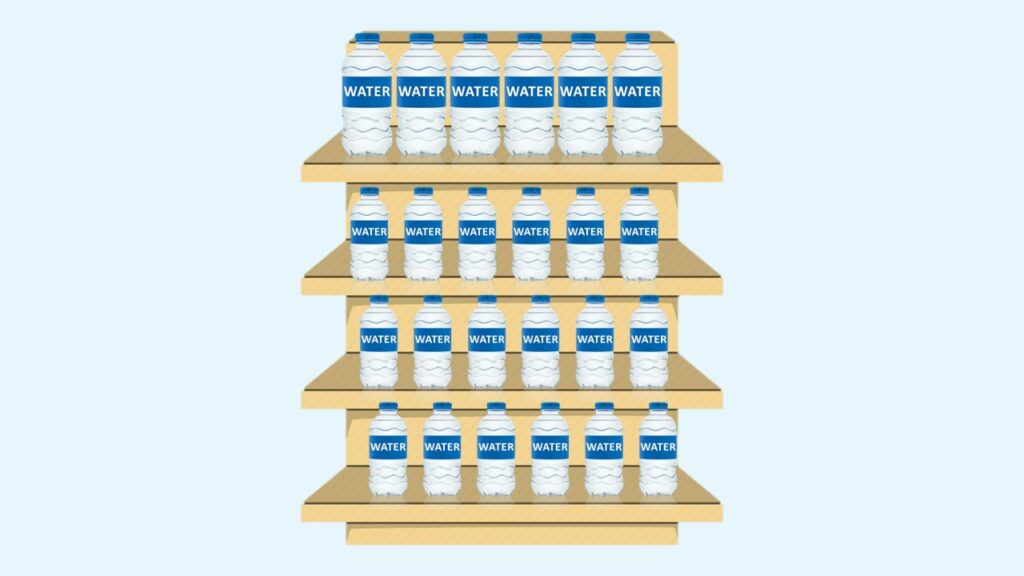
Is It Safe To Drink Bottled Water After Expiration Date (Does Water Bottles Expire)
While it’s generally safe to drink bottled water past its expiration date, the quality of the water may not be as good as it was when it was first bottled. Over time, the plastic used in the bottle can break down, potentially leaching chemicals or affecting the taste of the water.
Additionally, if the bottle has been exposed to sunlight or heat, it may be more prone to bacterial growth.
If you’re considering drinking bottled water that has passed its expiration date, it’s important to inspect the bottle for any signs of damage or discoloration. If the bottle appears to be in good condition and the water looks and smells normal, it’s likely safe to drink.
However, if the water has an unusual taste or odor, it may be a sign that the plastic has broken down or that bacteria has grown.
It’s also important to note that the expiration date on a bottle of water is typically related to the integrity of the bottle itself rather than the safety of the water. As a result, drinking water from an expired bottle is unlikely to cause immediate harm, but it may affect the taste and quality of the water.
How Long Is Bottled Water Good For After The Expiration Date
Bottled water can typically be consumed safely for a period of time after its expiration date, but the quality and taste may not be as good as when it was first bottled.
The expiration date on a bottle of water is typically related to the integrity of the bottle itself rather than the safety of the water. Over time, the plastic used in the bottle can break down, hypothetically leaking chemicals or affecting the taste of the water.
The length of time that bottled water is good for after the expiration date depends on several factors, including the storage conditions and the type of water. If the water has been stored in a cool, dry place away from direct sunlight or heat sources, it may last longer than water that has been exposed to heat or sunlight.
In general, it’s recommended that you drink bottled water before its expiration date to ensure the best quality and taste.
However, if you’re considering drinking bottled water that has passed its expiration date, it’s important to inspect the bottle for any signs of damage or discoloration. If the bottle appears to be in good condition and the water looks and smells normal, it’s likely safe to drink.
Where Is The Expiration Date On Bottled Water (Does Water Bottles Expire)
Manufacturers don’t usually write the expiration date on bottled water. However, the location of the expiration date on bottled water can vary depending on the brand and the type of bottle. In most cases, the expiration date is printed or stamped on the bottom of the bottle or on the label.
If you’re having trouble finding the expiration date, you can check the manufacturer’s website or contact their customer service for assistance.
It’s important to be aware of the expiration date on your bottled water to ensure the best quality and taste, and to avoid any potential health risks associated with drinking expired water.
The Bottom Line On Does Water Bottles Expire
Does water bottles expire? It depends. While bottled water can be consumed even after its expiration date, which is usually 2 years, it may not be as fresh or taste as good as when it was first bottled.
It’s recommended to drink bottled water before the expiration date and properly store it to ensure the best quality. To avoid potential health risks, consider using reusable water bottles as an alternative.
